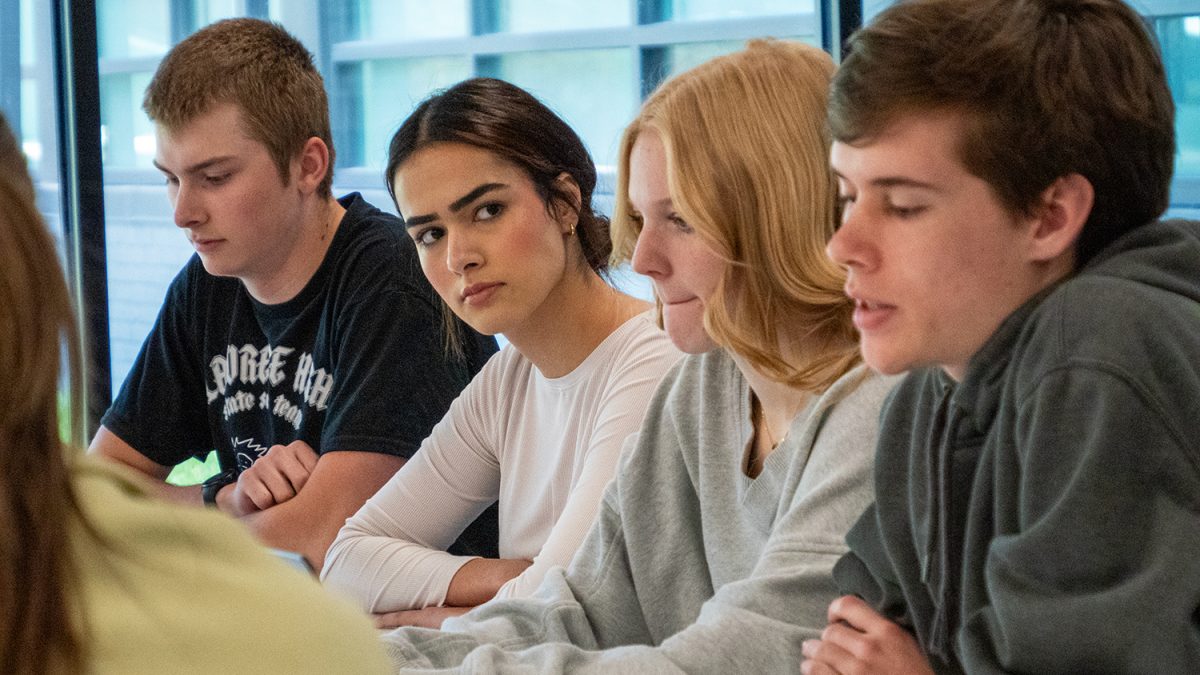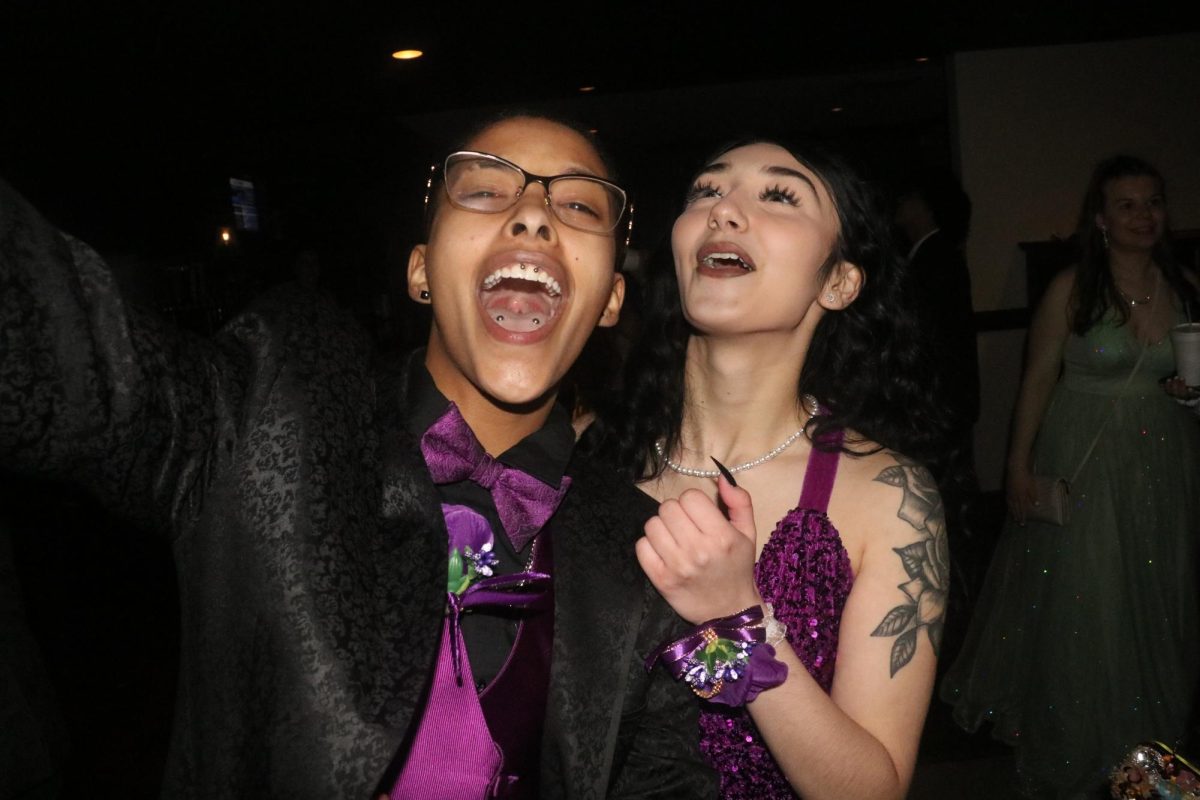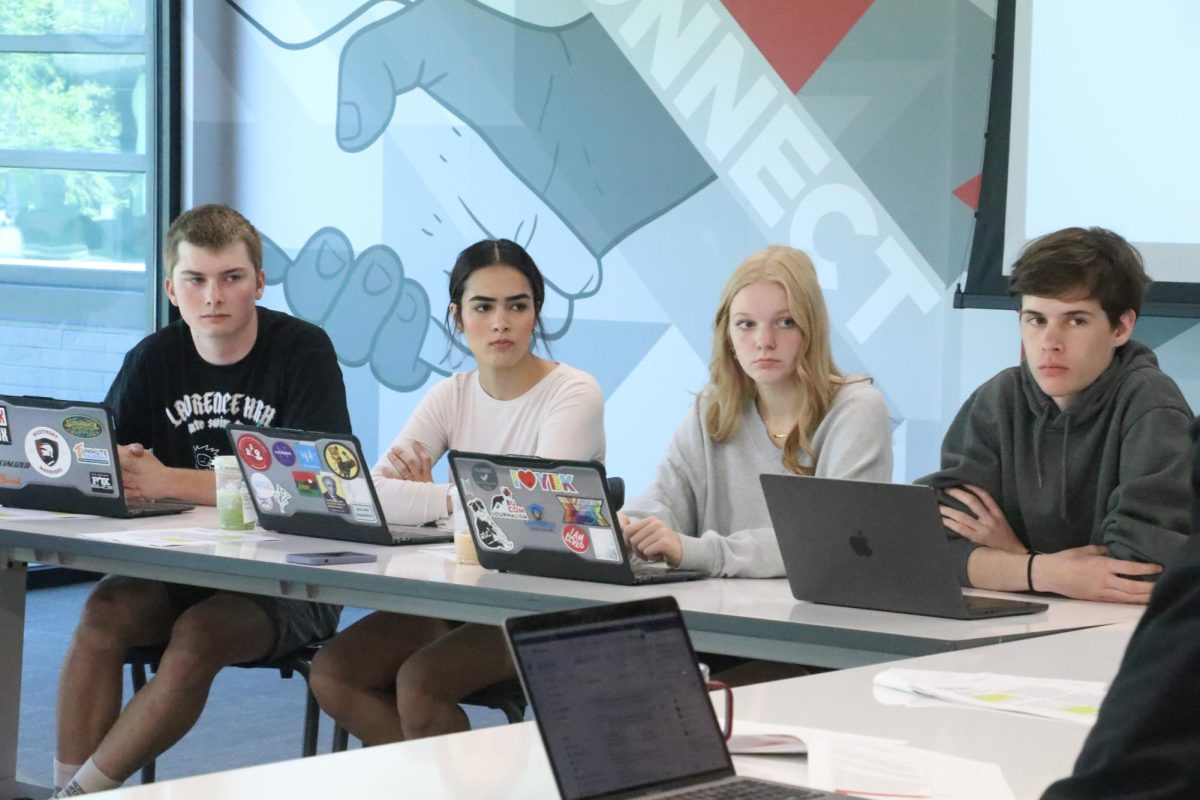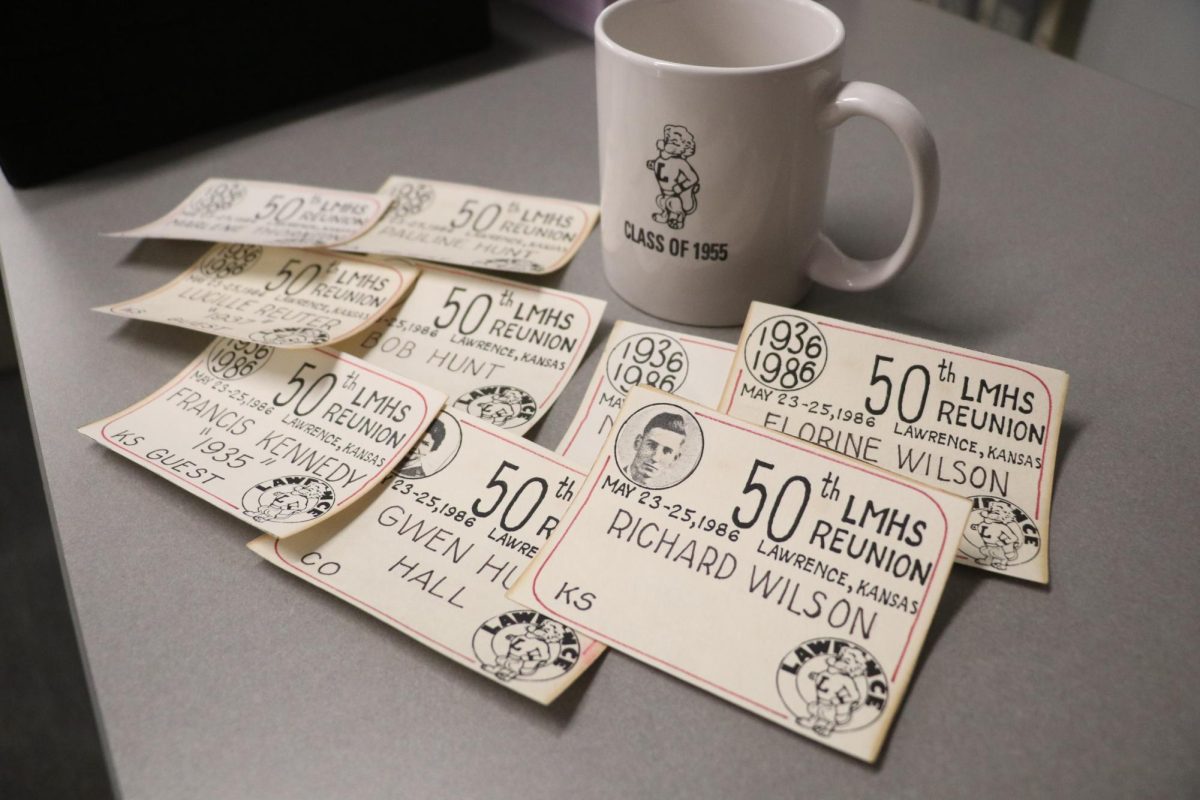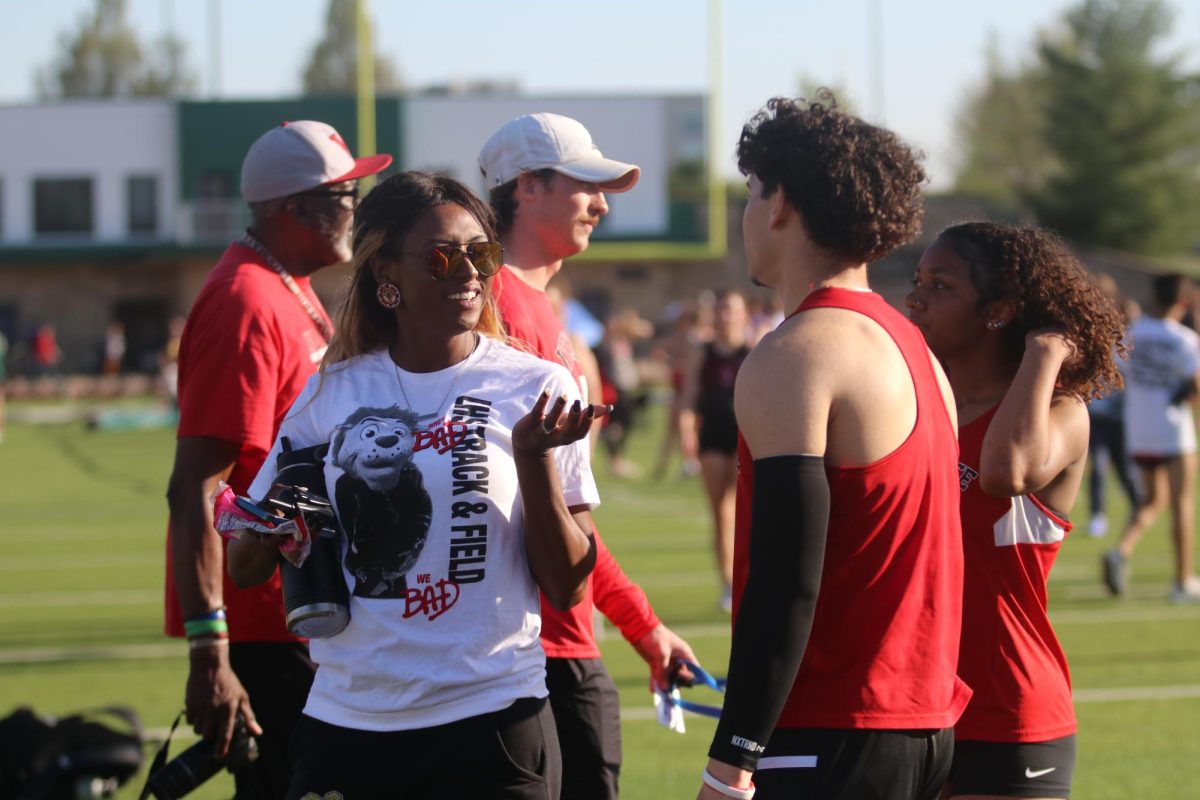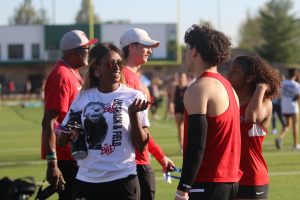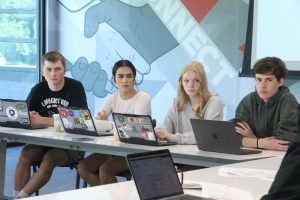This fall, Gregory Rudnick, an astronomy professor at the
University of Kansas, joins the LHS faculty as he works with
Andy Bricker to teach a special research-based astronomy
research class.
The class will teach the astronomy curriculum in about
three months, after which time students will begin conducting
research on star formations. This type of research-based class
has never before been offered at LHS, which may pose some
new challenges.
“[The challenges] are working with new information and
doing stuff that no one has done before. There isn’t some sort
of answer book that you can look to,” said senior Drew Bryant.
“This is a new thing that we are going into and it’s going to be
challenging.”
However, the students have the benefit of learning from an
expert in the field.
Rudnick, a Chicago native and the only new LHS faculty
member that can provide a history of the universe in one
paragraph, earned his bachelor’s degree in physics from the
University of Illinois Urbana-Champaign. He started work on
his PhD at the University of Arizona but ultimately finished it
in Germany.
“I went to graduate school at the University of Arizona and
half way through my PhD studies my adviser took a job in Germany
and left. He asked if I wanted to go and finish my PhD
with him so I went,” Rudnick said. “I was in Germany for five
years, finished my PhD and then did a research job at a federal
research institute in Germany.”
After returning to Arizona to work for National Optical
Astronomy Observatory, Rudnick eventually ended up at
KU after being offered a professorial job in the astronomy
department in 2008 where he currently teaches and conducts
research on the evolution of galaxies.
In a quest to acquire National Science Foundation funding
for his research at the university, Bricker’s new hour class was
born.
Every year the National Science Foundation receives
40,000 grant proposals in nearly every scientific field but only
selects 11,000 to actually fund. These proposals, Rudnick
explains, are judged on their scientific merit but must also contain
a broader impact component like community education,
sustainability or other forms of societal betterment.
“I thought doing an outreach program would make a good
broad impact,” Rudnick said. “[I contacted Mr. Bricker.] He
said he was interested and I had already started to develop this
concept [of a research class]. I submitted the proposal which
got reviewed and selected.”
Rudnick, Rudnick’s undergraduate teaching assistant
Brian Schafer and Bricker will cooperatively teach the class
and guide the student research. Though some students said
they took the class simply because Bricker was teaching it, others
enrolled for the chance to conduct research in a field they
may pursue in college.
“My guess is it’s probably the only real authentic research
happening at LHS,” Bricker said.
While Rudnick and Bricker agree that implementing a
research-based class model may be challenging, they have
high hopes.
“My hope is that the best students who do a good enough
project might be able to present it at an astronomy conference,”
Dr. Rudnick said. “I have funding to take a few of the
students who do the best job and fly them to an astronomy
conference. That would be my real hope.”



